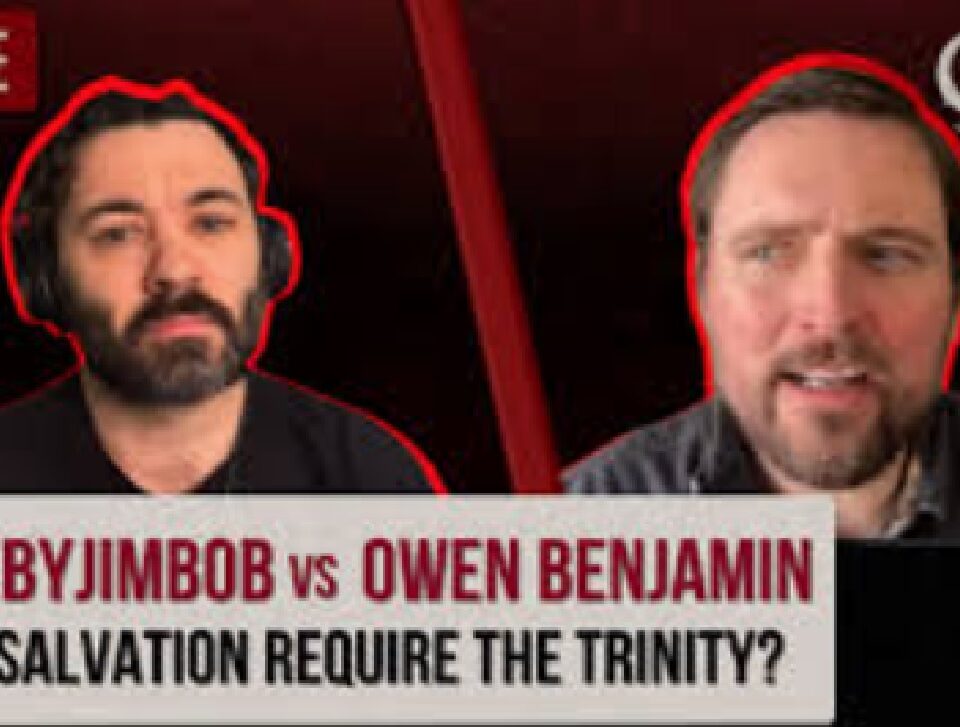
The agent of God
December 5, 2024
People as God in Judaism
December 5, 2024Speaking for and as God

The OT Hebrew oftentimes uses a literary device in poetic or prophetic prose of blending or mixing pronouns, i.e., “a more or less abrupt transition from one person to another.” (Gesenius’ Hebrew Grammar, p 462)
In Zech. 2:11b (following the NIV) Yahweh says:
“Many nations will be joined with the LORD in that day and will become my people. I will live among you and you will know that the LORD Almighty has sent me to you.”
But the translators of the NET add quotes mark but then drop them to show that the speaker has changed from Yahweh to either the prophet or the angel of Yahweh (who is typically the one speaker throughout this section).
“I will settle in the midst of you all.” Then you will know that the Lord who rules over all has sent me to you.
Later, in the famous vision of Zechariah 14:4 shows a day when God’s “feet will stand on the Mount of Olives.” But then Yahweh says in v.5: “Then you will escape through MY mountain valley…” But just a couple of verses later, in v.10, the speaker once again abruptly changes from Yahweh to His messenger: “Then the Lord MY God will come with all his holy ones with him.”
It’s also common to see God’s human or angelic agent/messenger speak as Yahweh Himself in the first person!
In Deut 29:2 Moses proclaimed to all Israel as follows: “You have seen all that the Lord did in the land of Egypt to Pharaoh, all his servants, and his land. 29:3 Your eyes have seen the great judgments, those signs and mighty wonders. 29:4 But to this very day the Lord has not given you an understanding mind, perceptive eyes, or discerning ears!
But then the unexpected change from Moses speaking in the first person as Yahweh Himself!
29:5a I have led you through the desert for forty years. 29:6 You have eaten no bread and drunk no wine or beer – all so that you might know that I am the Lord your God!
The Cambridge Bible for Schools and Colleges on Deut 29:5 notes that “here the speaker’s personality [i.e., Moses], is merged in that of the Deity [i.e., YHWH].”
The same occurs in 1K 21:20-22. Barnes’ Notes on the Bible on 1 Kings 21:21 says: “The prophet changes, without warning, from speaking in his own person to speaking in the person of God.”
- NOTE: some translations like The NET Bible add an introductory formula “the Lord says” not found in the Hebrew text for clarification.
This literary device is also used when people speak as other people.
- Gen. 43-44: The steward of Joseph is treated by Joseph’s brothers as if he is Joseph himself.
- Luke 7:6-10: The friends of the centurion speak as the centurion and are addressed by Jesus as if they are the centurion himself: “The centurion sent friends to say to [Jesus]…‘I do not deserve to have you come under my roof.’ When Jesus heard this, he was amazed at him. Then the men who had been sent returned to the house and found the servant well.”
- Philemon 17: Paul tells Philemon to welcome the runaway slave Onesimus “as though he were me” (lit. “as me”).
With this in mind we can perhaps better understand Jesus saying to his fellow Jews in Matt 23:
37 “O Jerusalem, Jerusalem, you who kill the prophets and stone those who are sent to you How often I have longed to gather your children together as a hen gathers her chicks under her wings, but you would have none of it! 23:38 Look, your house is left to you desolate!”
Jesus once again appropriates to himself a familiar “Yahweh text” that shows God sheltering people under His wings (most notably in the Psalms 17.8; 36.7; 57.1; 61.4; 63.7; 91.4).
The New American Commentary (v.22, 1992, p 350) sees here a Lament for the Coming Destruction of the Temple notes that:
“Jesus’ outburst also reminds one of David’s tragic lament for Absalom in 2 Sam 18:33 and 1:24. Jesus is a Jew, these are his people, and this is his holy city. To the extent that he is conscious of the divine presence within him, his agony is greatly multiplied….So God in Christ withdraws from the people, even as Jesus leaves the temple.”
And The MacArthur New Testament adds that OT prophets, like Jeremiah, “expressed similar grief when he considered the prospect of Judah’s being taken captive by Babylon because of her defiance of God (Jer. 13.17).”
Other examples include John 2:19 where Jesus might be speaking in the place of his Father – who would literally raise up the temple of Jesus’ body.
And John 8:12 when Jesus identifies himself as “the light of the world.”
This is something the prophets say about Yahweh in Isa 51.4, cp. Christians (Mat 5.14) and the Apostles (Acts 13:47).
Recommended
Biblical Agency – The Human Messiah Jesus
https://rfcogstudy.blogspot.com/2024/11/a-man-attested-6-by-god-kirk.html

